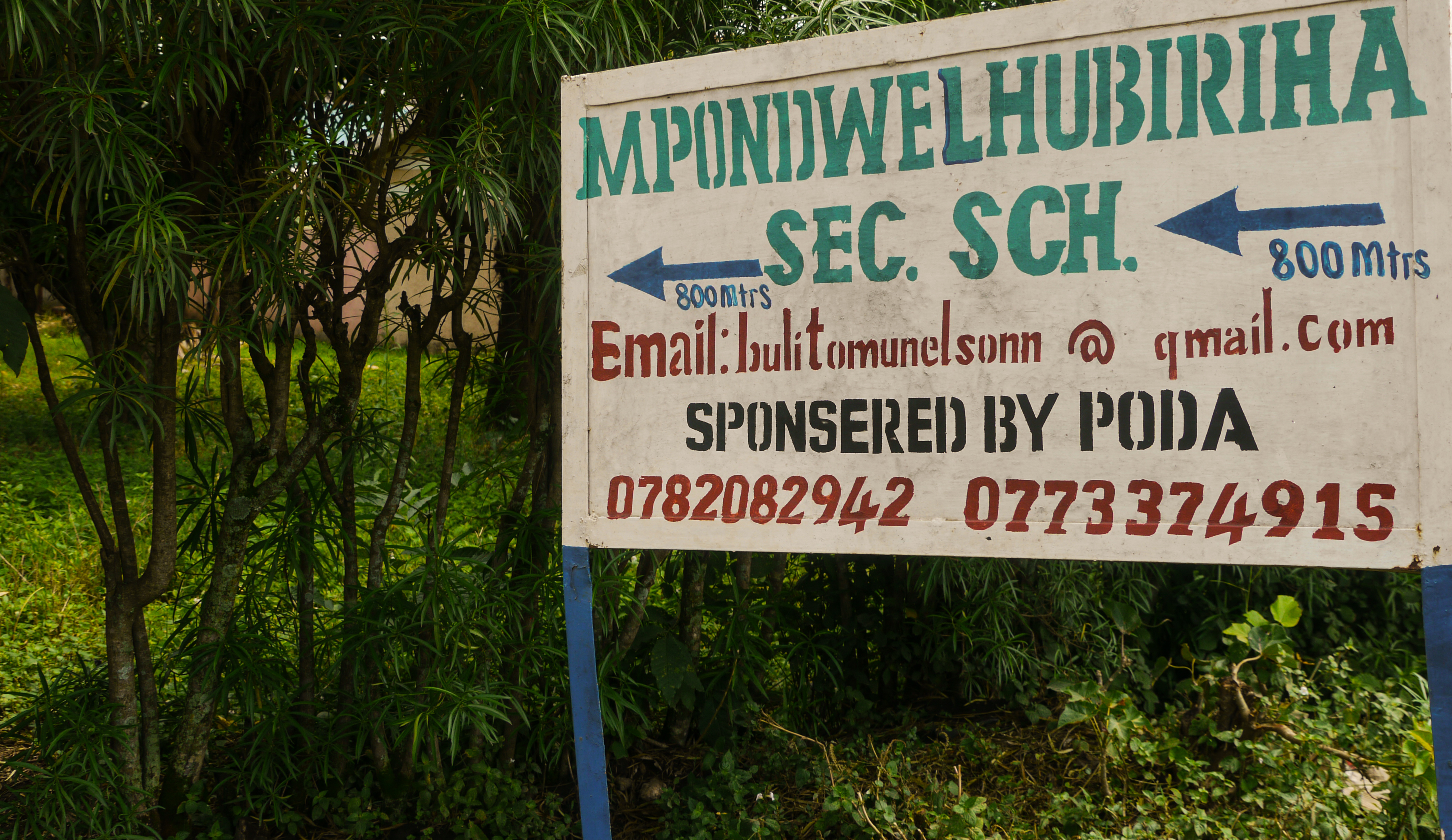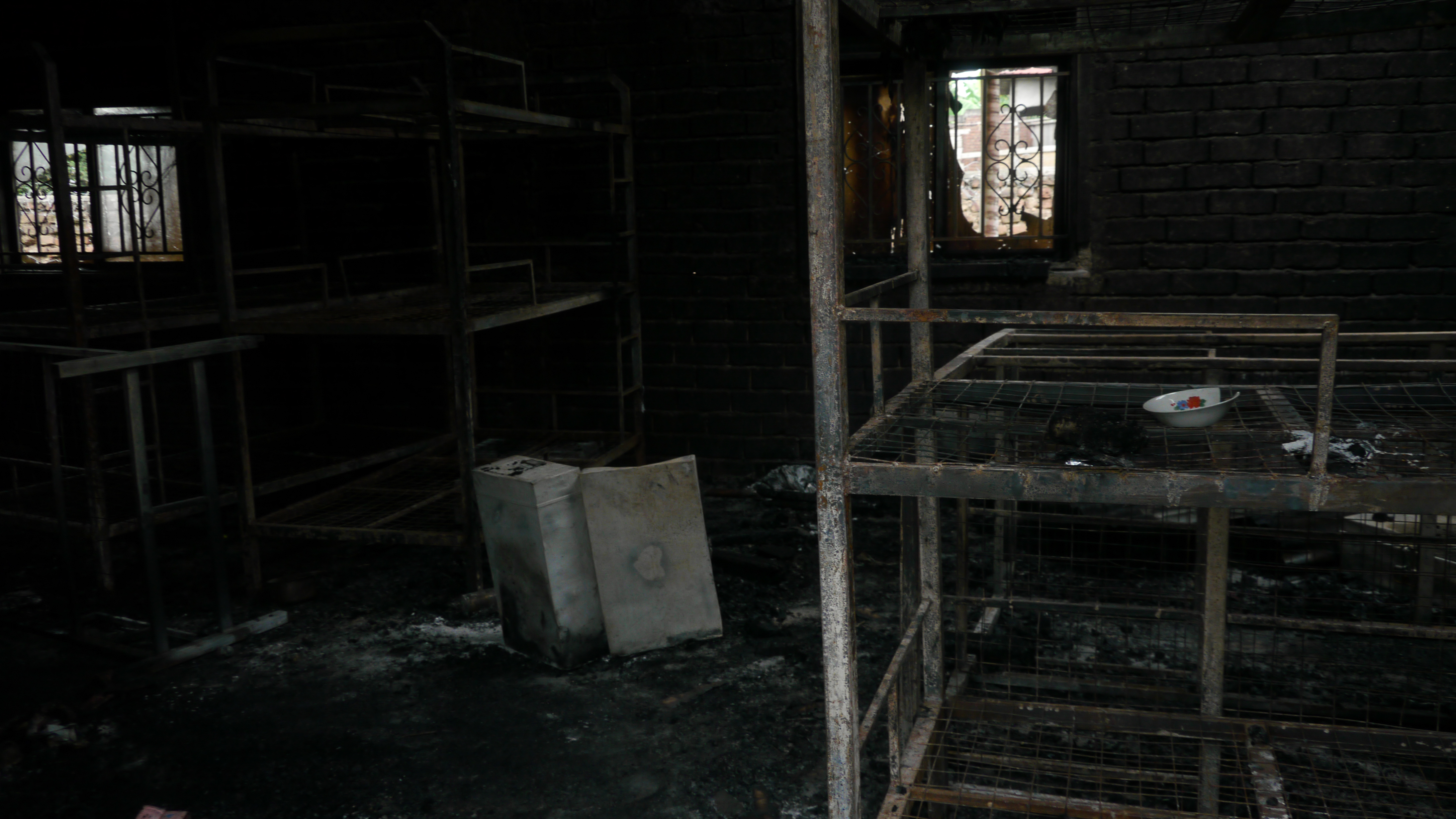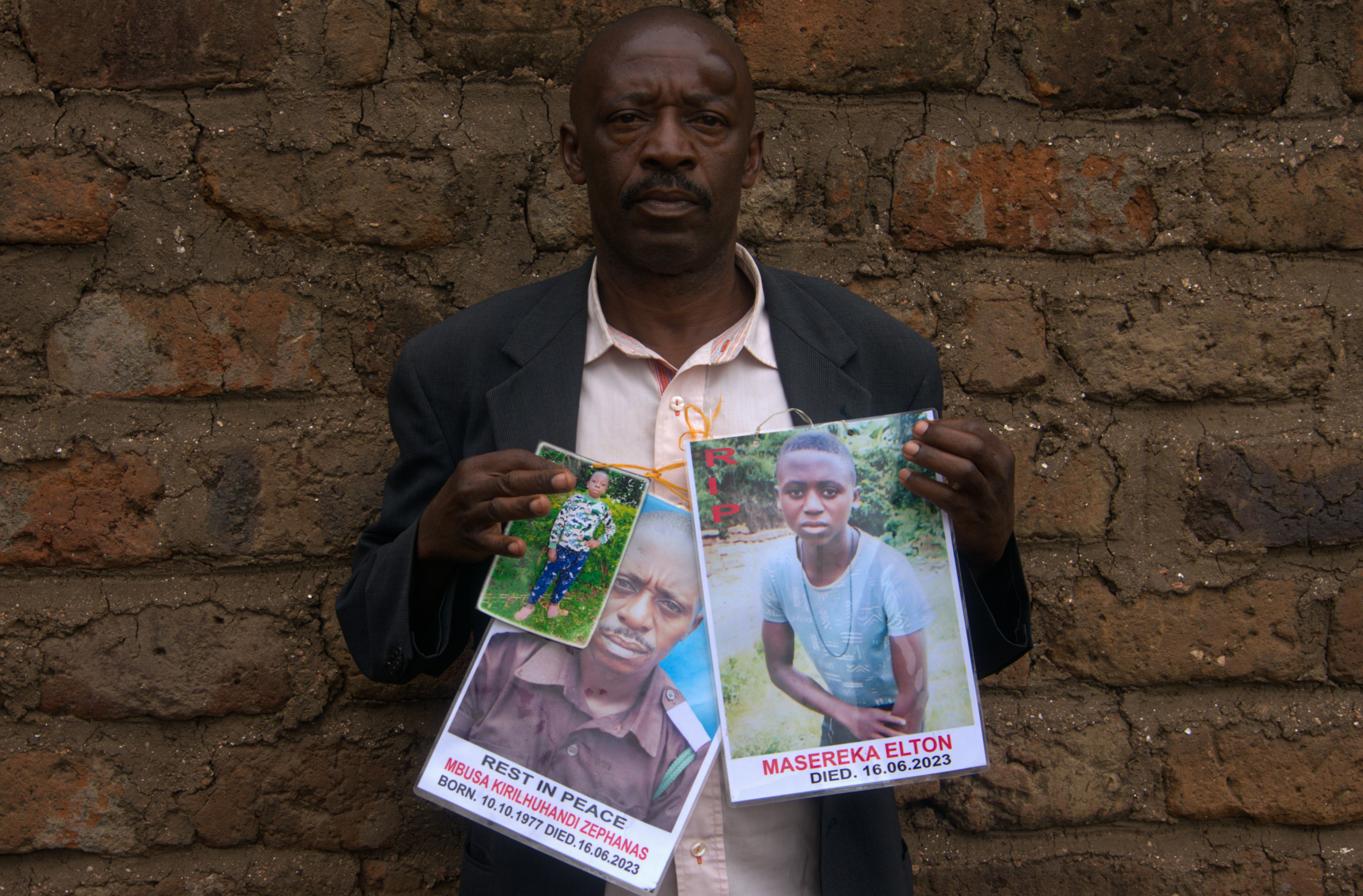
Mpondwe, Uganda – Most nights, Godwin Mumbere and his classmates at Lhubirira Secondary School in Mpondwe on Uganda’s western border with the Democratic Republic of the Congo (DRC) study and sing quietly before turning off the lights at 10pm and climbing into their bunk beds.
On June 16, that routine was disrupted by an unknown number of attackers, alleged rebels from the Allied Democratic Forces (ADF), who stole over the border from the DRC and set upon the school. Within hours, they had slaughtered more than two dozen pupils in the deadliest attack Uganda has experienced in decades.
Mumbere, 18, recalls that the assailants arrived about half past 10pm.
They first shot the school watchman before demanding the boys open their dormitory door. “All my friends in the dormitory refused,” Mumbere told Al Jazeera.
The head boy instructed them to hide beneath the beds, and Mumbere did as he was told while attackers fired bullets through the windows and the locked door.
Raiders proceeded to the girls’ sleeping quarters and killed the students there. Multiple medical personnel told Al Jazeera that most of the students were bludgeoned with hammers and hacked to death with machetes.
The rebels also forced their way into the boys’ shuttered room, still firing guns. One of the bullets hit Mumbere in the hand. He wrapped it in a cloth.
Finally, the militia set the boys’ dormitory on fire. So Mumbere took his chances and fled into the night.
In her house across the school compound, the headmaster’s wife, Brenda Masika, 27, heard gunfire and students crying out for help. Her husband was away on business, and she was alone with her three children.
A man dressed in a green uniform and carrying a gun entered the house, she said. He took her phone and the food she’d left on the fire before threatening to kill her too. It was only when he saw that she had a baby that he allowed the family go before setting the house ablaze.
In the compound, Masika saw the watchman’s body and the wrecked boys’ dorm. She stood weeping as the buildings burned, unable to save anything from her home.

After the attack
The rebels abducted six students and looted food stores. They made their way out of Mpondwe, burning more houses and killing villagers, before slipping back into DRC.
At 1am, the bodies began to arrive at the mortuary of a local hospital, head administrator Clarence Bwambale explained.
Thirty-seven students and five villagers were killed, according to an official police report. Another woman died of severe head injuries several days after the raid, bringing the fatalities to 43. The student victims ranged in age from 12 to 25.
Seventeen bodies were sent to the nearby city of Fort Portal for DNA identification because they were charred beyond recognition.
Parents arrived at dawn on June 17 to identify and claim the bodies of their children, forming a rush so intense that the hospital had to close its gates and allow them into the mortuary in small groups.
The staff tried as best they could to comfort the grieving families.
“Losing a person and losing a child to such a gruesome death isn’t something easy,” Bwambale told Al Jazeera. “Crying is also part of healing. You allow them to cry and then you console.”
By midday, the mourners began to buy coffins.
Banage Saleteri, who runs a small carpentry shop on the roadside in Mpownde, has sold 17 caskets since the attack, offering them at a discount in light of the tragedy. “My customers came crying, so the price was cheap,” he told Al Jazeera.
It is the most difficult period the coffin maker has faced, he said. “There were so many dead bodies,” Saleteri said.

Whispers and questions
As Mpondwe grieved, Uganda’s authorities blamed the attack on the ADF rebels, and in a statement, President Yoweri Museveni called their actions “criminal, desperate, terrorist and futile”.
The ADF was originally formed in western Uganda in 1995 in opposition to the government. Three years later, its rebels killed 80 students and abducted more than 100 from Kitchwamba Technical College in an attack similar to the one in Mpondwe.
The group eventually migrated to DRC in 2001, where it continues to wreak havoc on the civilian population.
In 2015, ADF leader Jamil Makulu was arrested in Tanzania. His successor, Musa Seka Baluku, then swore fealty to ISIL (ISIS).
According to the latest report by United Nations experts in the DRC, ADF collaborators in Uganda received money transfers of at least $60,000 between 2019 and 2020 from an ISIL outlet in Somalia while ISIL claimed credit for ADF crimes committed as recently as April.
But the extent of direct communication and collaboration between the ADF and ISIL remains hazy.
Previous attacks have nonetheless sent political ripples through the region. Bombings at a pork restaurant in downtown Kampala killed three people in October 2021, prompting Uganda and the DRC to launch a joint operation to flush the ADF out.
After the assault in Mpondwe, Museveni threatened to “hunt the ADF terrorists into extinction”. Uganda sent more troops across the border to rescue the students. So far, three have been found.
Major General Dick Olam, who commands Uganda’s troops in the DRC, told journalists that the ADF spent two days in town, aided by local collaborators, before descending on the school. Last week, officials arrested 20 people, including the Lhubirira Secondary School headmaster, on suspicion of abetting the rebels.
Residents of Mpondwe whisper that the ADF easily crosses a porous border, often used by smugglers, between Uganda and the DRC. It is not uncommon to see men in uniform on these back roads, which are sometimes patrolled by Uganda military, or hear pops of gunfire in the night as soldiers pursue petty criminals.
After the attack, a shaken community called for more protection. “We don’t sleep very well,” Saleteri said. “We don’t know what will happen.”
Local Muslims, meanwhile, fear retaliation.
“We all enter the house very early,” said Umar Nadhiru, general secretary of Nyakahya mosque in Mpondwe. “At night when you are coming from the prayer, they may even pick you and take you, thinking that you are a wrong person.”
A town mourns
A week later, grief hangs thickly over Mpondwe along with an eerie quiet. Families living near Lhubirira Secondary School have vacated the area. Others rush home before dark.
Among the mourners is Masereka Loti, 50, whose brother was the slain school watchman. “We could sit and plan for the family,” Loti said. “Now I will be alone.”

His nephew Elton was also killed by the assailants. Another nephew is missing. The family has sent DNA out to be matched, but they do not know if he is among the burned bodies.
“We are just waiting,” Loti said.
Three laminated photos of their missing and dead relatives hang on a peg outside the family home, strung together with fraying yellow twine.
The gate to Lhubirira Secondary School is closed and guarded by police.
The boys’ dorm smells of smoke and bits of burned clothing are fused to the metal bunk beds. A few personal items litter the ash-strewn floor.
Messages scrawled by pupils are barely legible on the blackened walls.
When Al Jazeera met Mumbere on Wednesday, he was still recovering and wasn’t sure when he’d be released from hospital. But he wants to return to school and continue his studies, to fulfil his dream of becoming an engineer.







